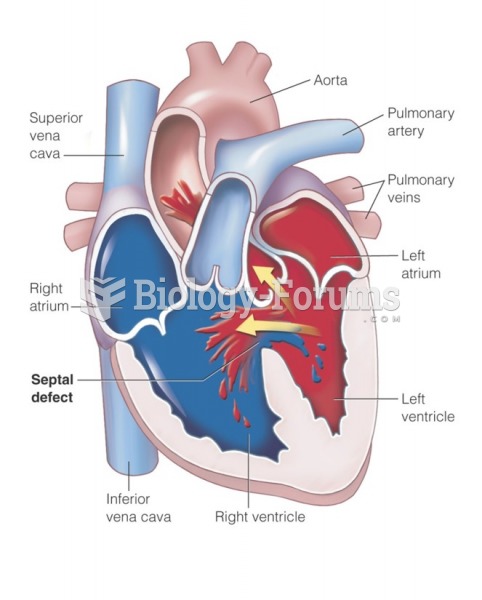|
|
|
More than 150,000 Americans killed by cardiovascular disease are younger than the age of 65 years.
Of the estimated 2 million heroin users in the United States, 600,000–800,000 are considered hardcore addicts. Heroin addiction is considered to be one of the hardest addictions to recover from.
Cutaneous mucormycosis is a rare fungal infection that has been fatal in at least 29% of cases, and in as many as 83% of cases, depending on the patient's health prior to infection. It has occurred often after natural disasters such as tornados, and early treatment is essential.
The heart is located in the center of the chest, with part of it tipped slightly so that it taps against the left side of the chest.
There are more bacteria in your mouth than there are people in the world.







